Cell Cycle/Checkpoint
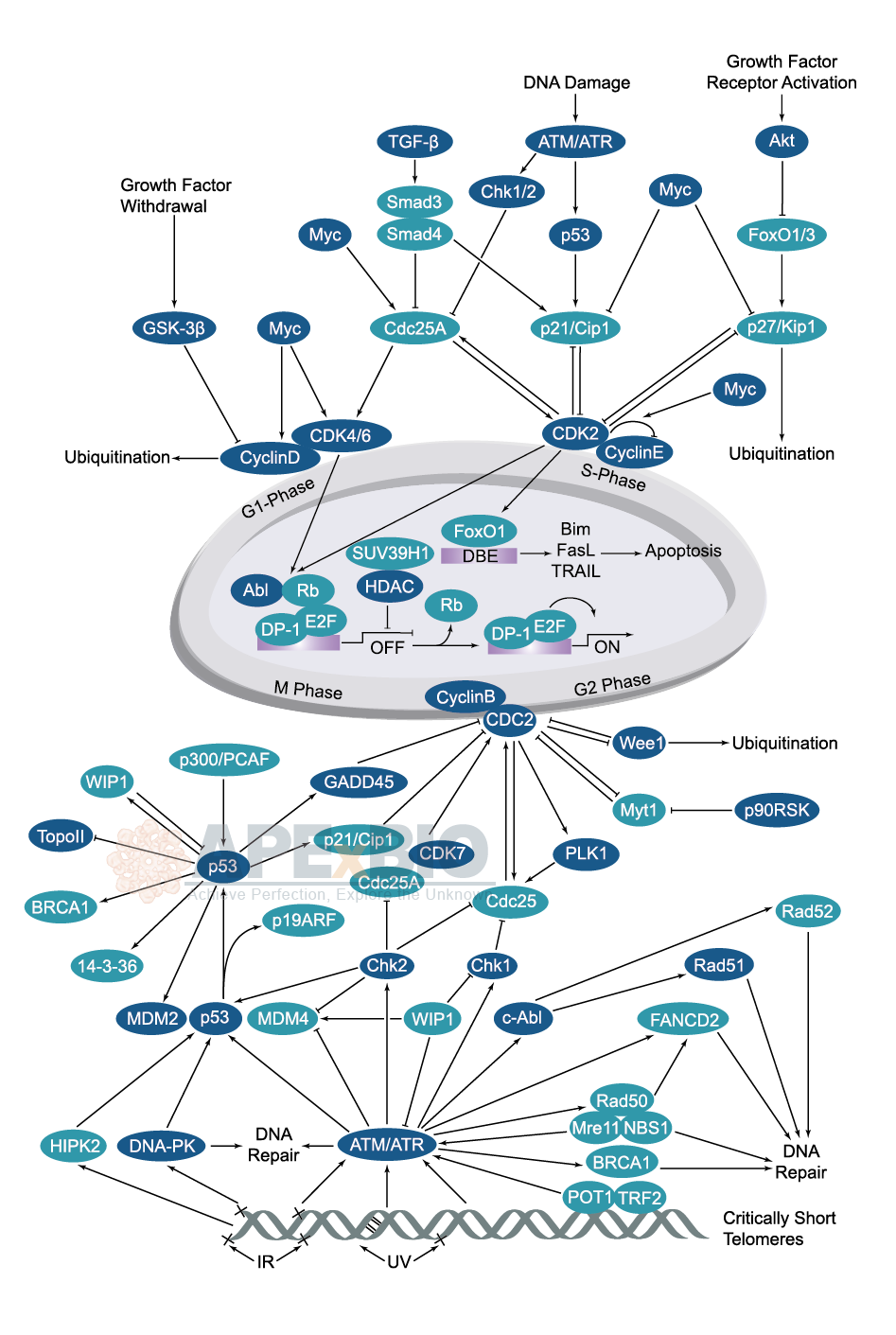
The cell cycle is consisted of 4 main phases: Gap 1 (G1), DNA replication (S), Gap 2 (G2), and mitosis (M). There are “checkpoints” mechanism regulates the transition between these phases, at the G1/S boundary, in the S-phase and during G2/M phases. Cell can only pass through these checkpoints when signaling factors are activated and free of DNA damage. Important proteins that control cell cycle events and checkpoints are cullins, cyclins, cyclin-dependent kinases (Cdks), p53 and their inhibitors etc. Cdks family (Cdk2, Cdk3, Cdk4 and Cdk6) are Ser/Thr kinases that regulate cell cycle progression in association with cyclin binding partners (cyclin D, cyclin E and cyclin A) during all four phases. p53 halts the cell cycle if the DNA is damaged and allowing time for DNA repair to progress; it can also initiate apoptosis if DNA damage is too severe to be repaired.
-
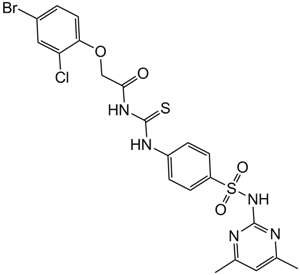 A8300 ZCL2781 CitationTarget: Cdc42Summary: Selective Cdc42 inhibitor
A8300 ZCL2781 CitationTarget: Cdc42Summary: Selective Cdc42 inhibitor -
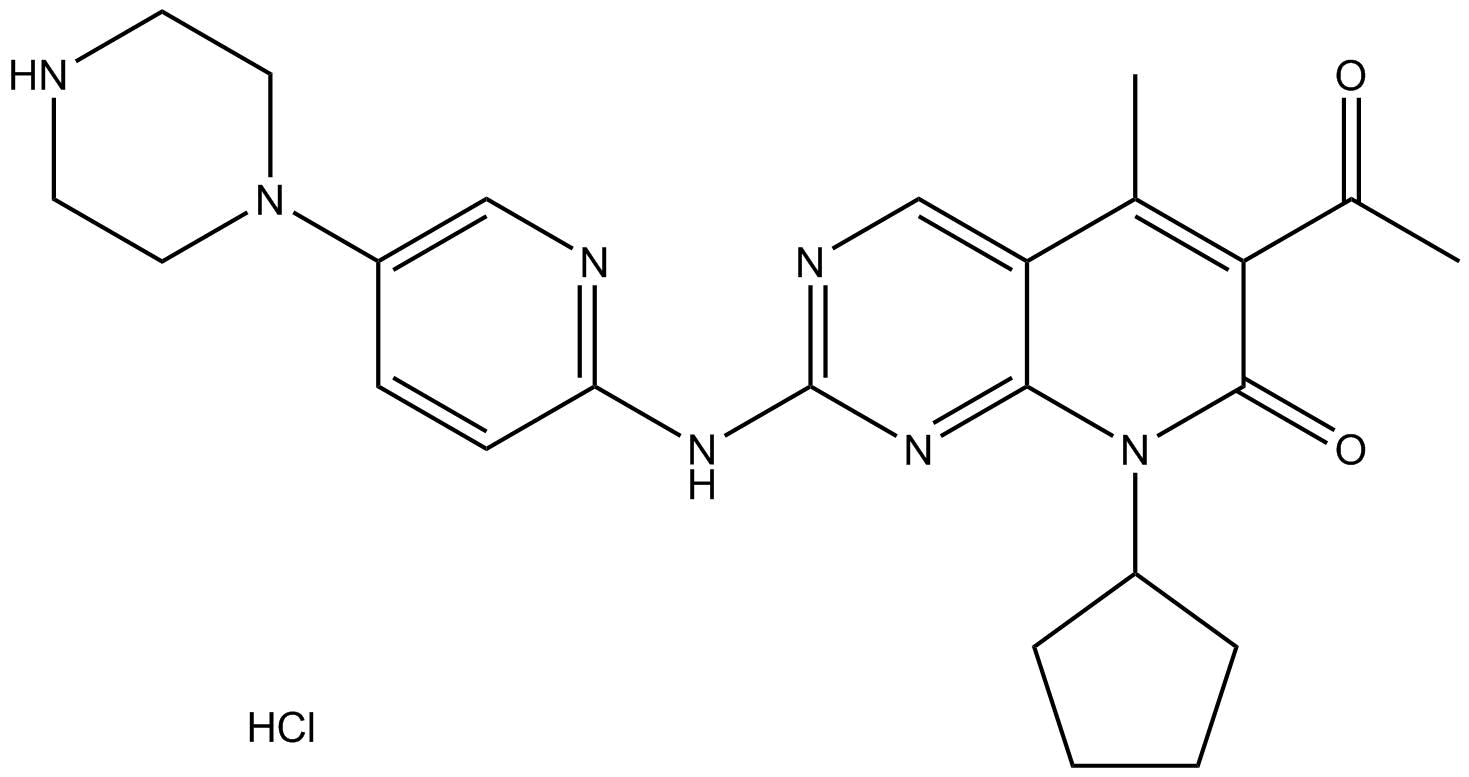 A8316 PD 0332991 (Palbociclib) HCl14 CitationTarget: Cyclin-Dependent KinasesSummary: CDK4/6 inhibitor
A8316 PD 0332991 (Palbociclib) HCl14 CitationTarget: Cyclin-Dependent KinasesSummary: CDK4/6 inhibitor -
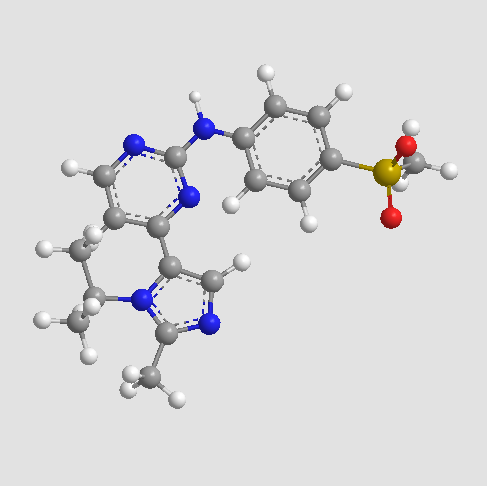 A8326 AZD-54382 CitationTarget: Cyclin-Dependent KinasesSummary: Potent CDK1/2/9 inhibitor
A8326 AZD-54382 CitationTarget: Cyclin-Dependent KinasesSummary: Potent CDK1/2/9 inhibitor -
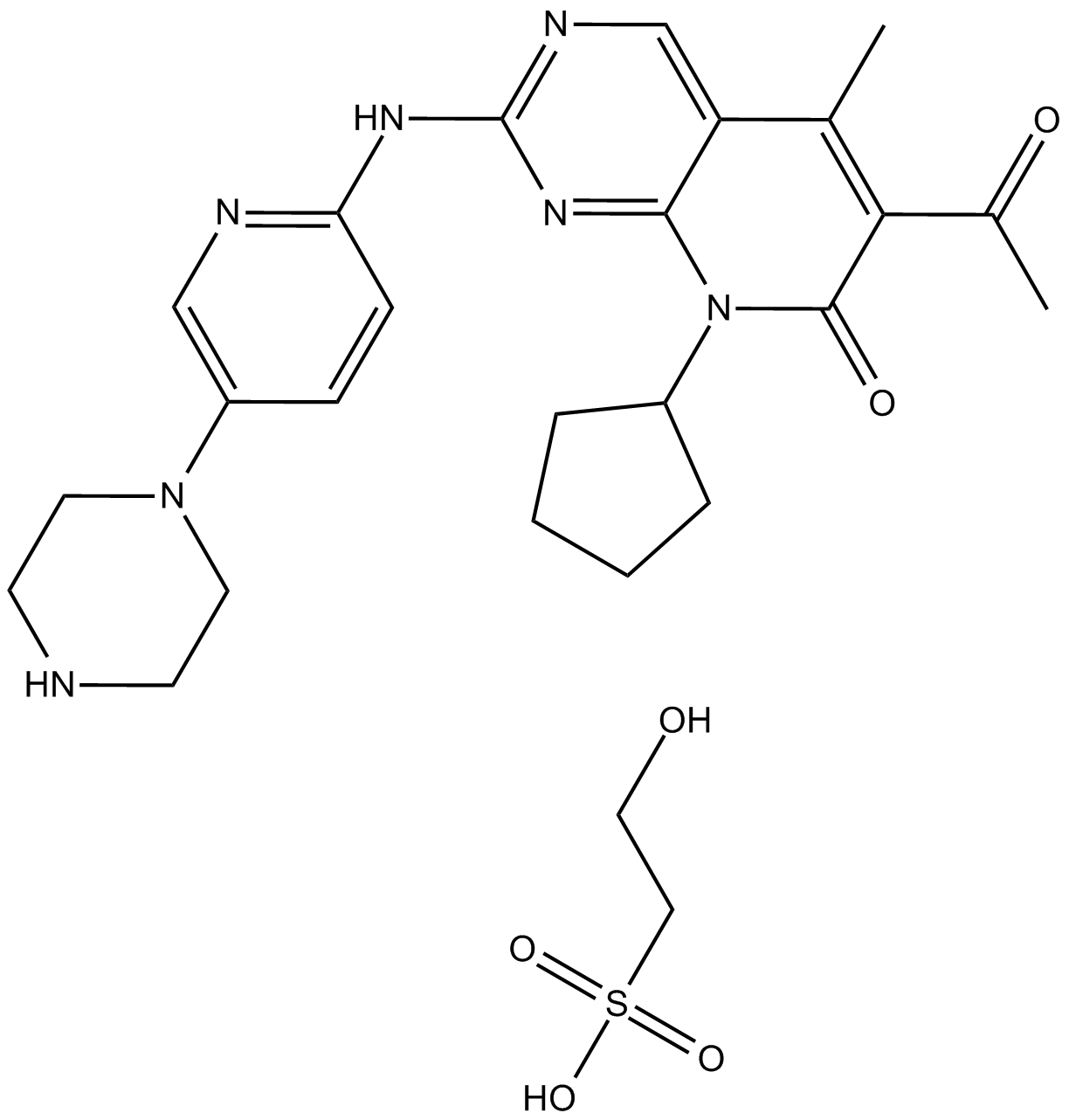 A8335 Palbociclib (PD0332991) Isethionate1 CitationTarget: Cyclin-Dependent KinasesSummary: CDK4/6 inhibitor,highly selective
A8335 Palbociclib (PD0332991) Isethionate1 CitationTarget: Cyclin-Dependent KinasesSummary: CDK4/6 inhibitor,highly selective -
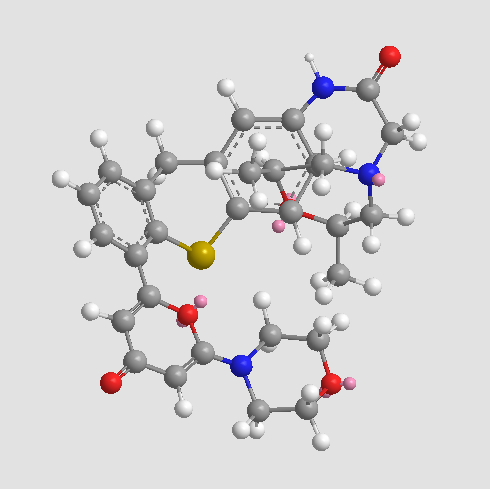 A8336 KU-600192 CitationTarget: ATM/ATRSummary: ATM kinase inhibitor,potent and selective
A8336 KU-600192 CitationTarget: ATM/ATRSummary: ATM kinase inhibitor,potent and selective -
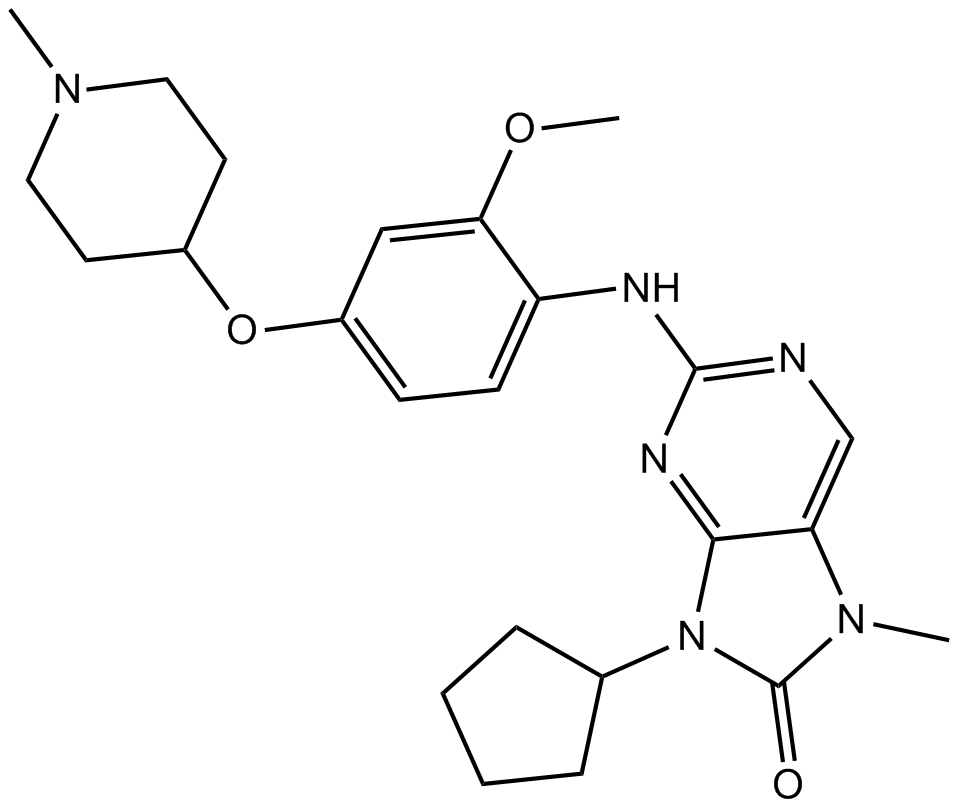 A8372 AZ3146Summary: Mps1 inhibitor,potent and selective
A8372 AZ3146Summary: Mps1 inhibitor,potent and selective -
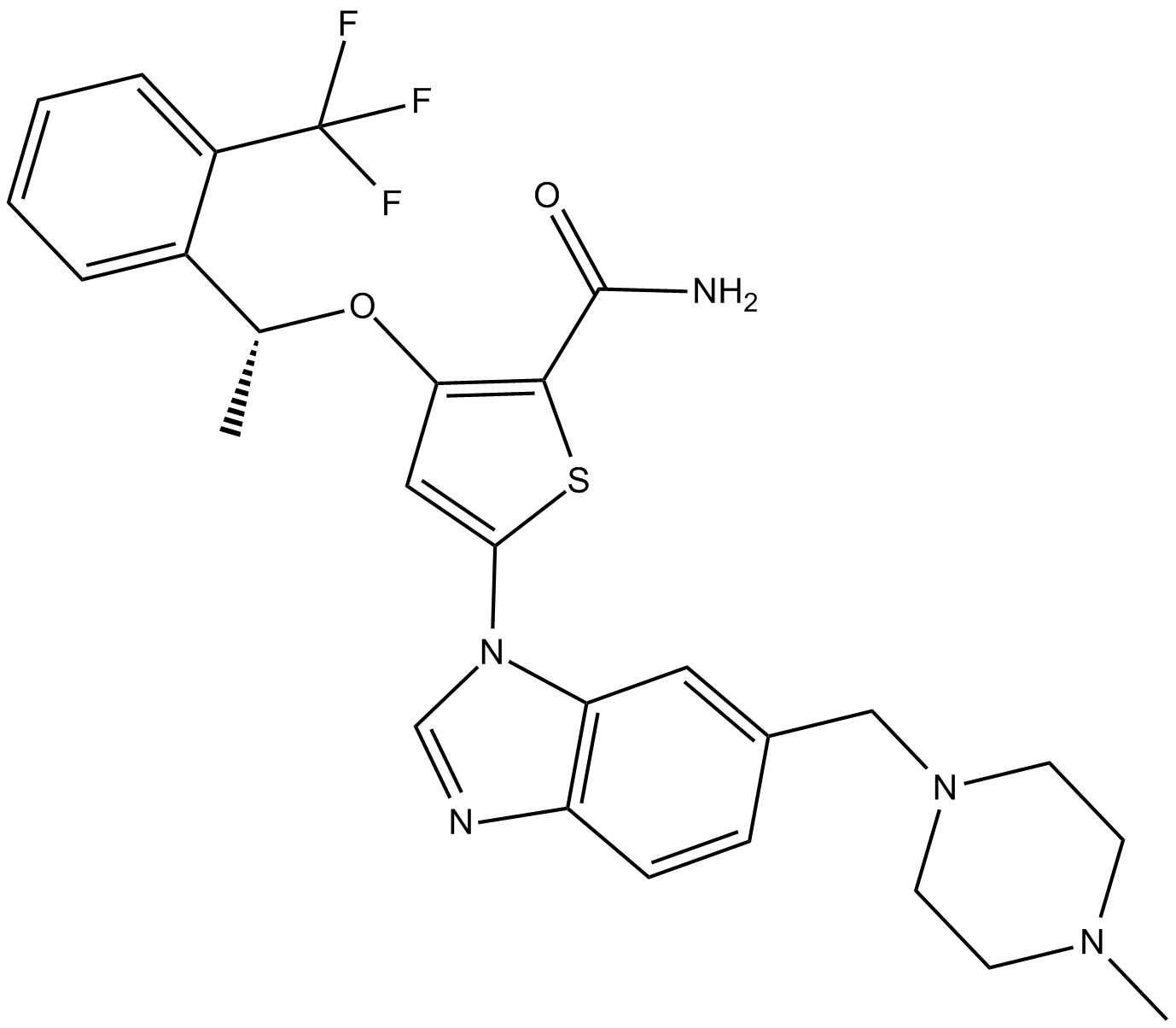 A8441 GSK4613643 CitationTarget: PLKSummary: Plk1 inhibitor
A8441 GSK4613643 CitationTarget: PLKSummary: Plk1 inhibitor -
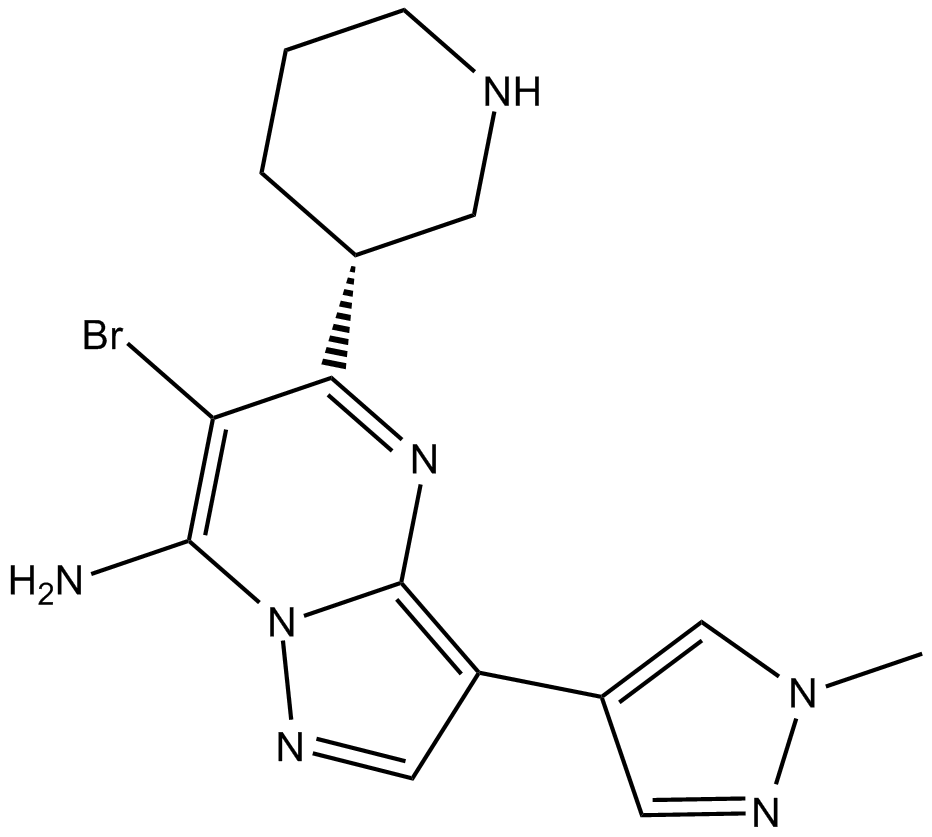 A8477 MK-8776 (SCH-900776)Target: ChkSummary: Chk1 inhibitor,potent and selective
A8477 MK-8776 (SCH-900776)Target: ChkSummary: Chk1 inhibitor,potent and selective -
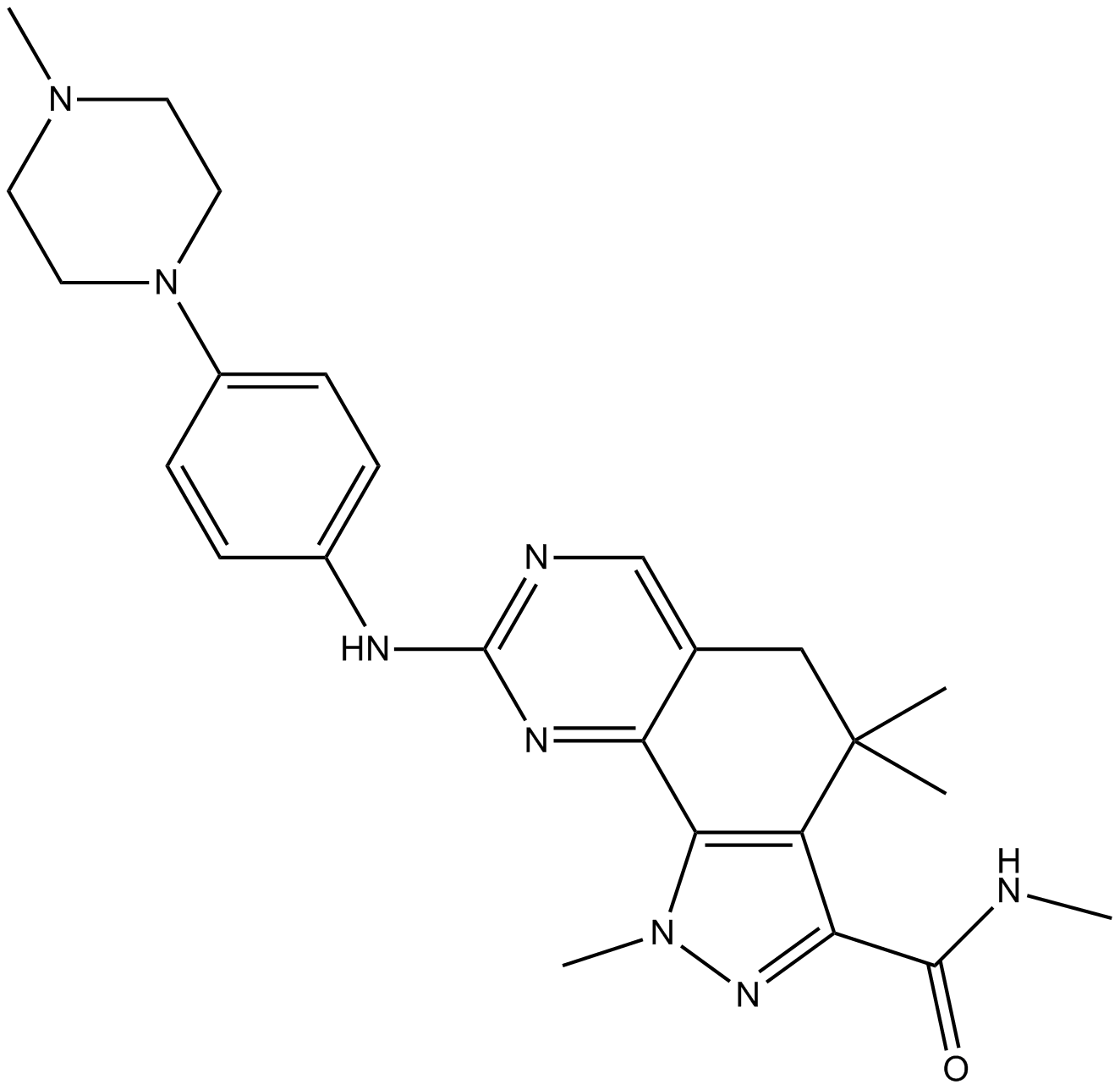 A8501 PHA-848125Target: Cyclin-Dependent KinasesSummary: CDK inhibitor,potent and ATP-competitive
A8501 PHA-848125Target: Cyclin-Dependent KinasesSummary: CDK inhibitor,potent and ATP-competitive -
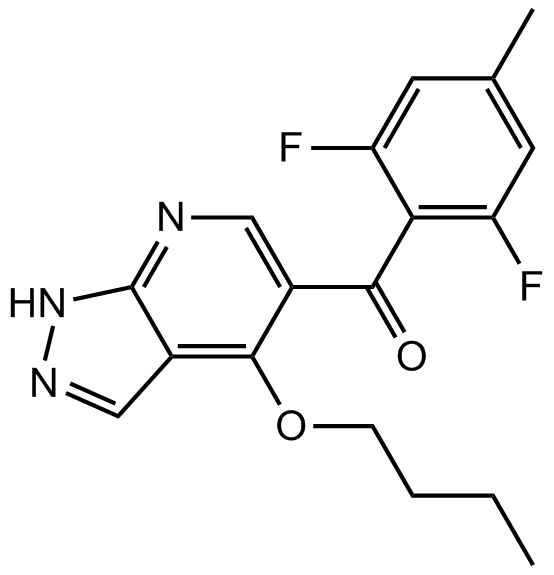 A8385 BMS265246Target: Cyclin-Dependent KinasesSummary: CDK1/2 inhibitor,potent and selective
A8385 BMS265246Target: Cyclin-Dependent KinasesSummary: CDK1/2 inhibitor,potent and selective

